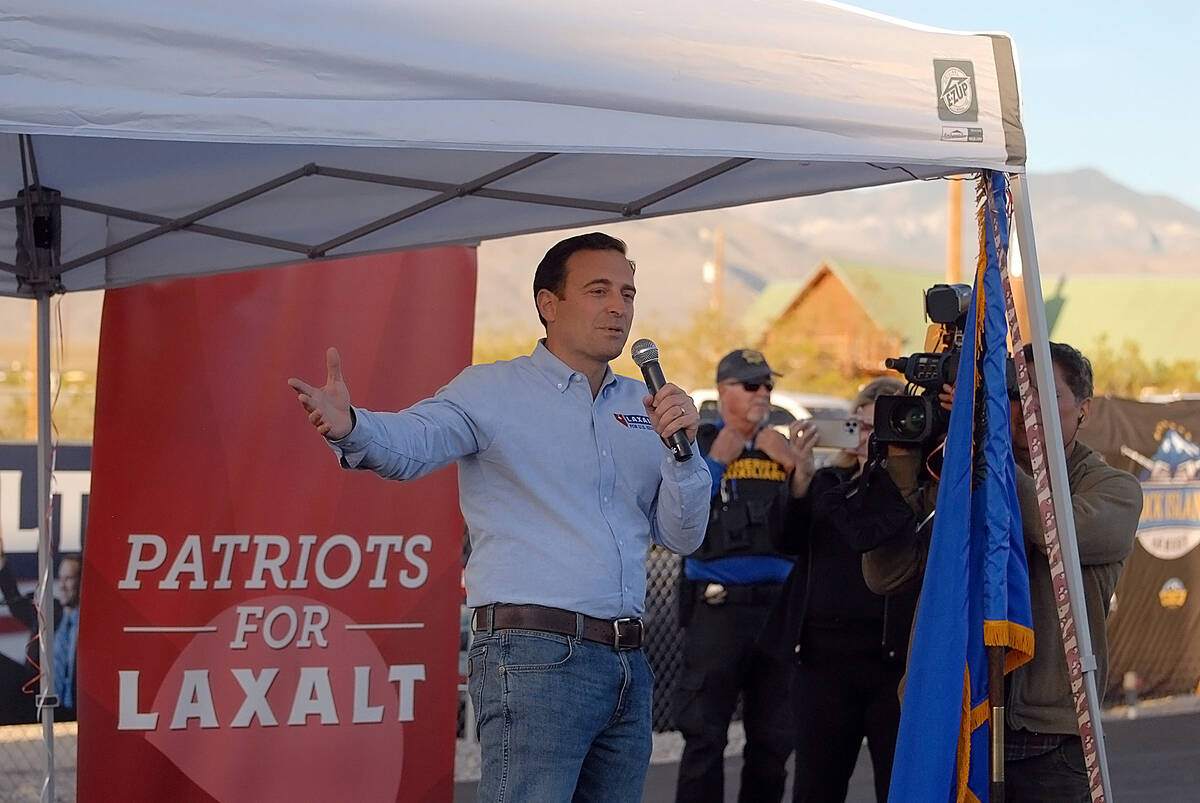VICTOR JOECKS: Voter numbers reveal red wave rising in Nevada
As early voting ends, Adam Laxalt and Joe Lombardo are in a much better position than their Democratic opponents are. How far down the ballot a potential red wave goes depends on how many Republicans are waiting until Election Day to vote.
Hundreds of thousands of Nevadans have already cast their ballots, either by mail or at an early voting site. The partisan breakdown and trends from past elections offer substantive insight into Tuesday’s results. Before 2020, Nevada didn’t have universal mail ballots, which makes it harder to interpret the data. But it’s obvious things look good for Republicans.
As of Thursday, Democrats’ edge in Clark County voter turnout is under 25,000. That’s a great sign for Republicans. If votes come in at the same pace as 2020, the first year Nevada had mail ballots, the Democrat advantage in Clark will end up under 27,000 voters. Even if it gets to 35,000, that would be a much lower buffer than in previous years.
In 2018, Democrats’ turnout advantage in Clark topped 71,000 voters. Gov. Steve Sisolak defeated Laxalt by 40,000 votes. If Democrats’ lead in Clark is greatly diminished, Laxalt and Lombardo are going to cruise to victory.
Democrats need to run up the score in Clark, where they have a 127,000-person edge in voter registration. Statewide, Democrats’ advantage is just more than 52,000. The party’s lead in voter registration is down significantly from past elections. They need those votes in Clark to offset deep losses in sparsely populated, but heavily red, rural Nevada. Things are usually close in Washoe County.
Then there are the other factors that should help Republicans. Independent voters appear much more likely to support GOP candidates this year. Remember, 2018 was a tough year for Republican candidates because it was the midterm during a Republican president.
Now, President Joe Biden is in charge, and Democrats have destroyed the economy. Not a great selling point for nonpartisan voters. Expect nonpartisan and third-party voters to be more likely to vote Republican than in 2018.
Another unknown is Hispanic voters, many of whom are registered Democrats. The Republican Party and candidates, including Laxalt, have undertaken a significant effort to reach those voters. Democrats created an opening with their radical stances on social issues and inflation-producing policies.
If successful, Republicans will win more votes from Hispanics who are registered Democrats than in past years.
The last variable is where voter turnout ends up. Currently, it’s well under 40 percent. Democrats haven’t shown up en masse, and neither have Republicans. It’s unlikely Democrats have a big surge left because they pushed their voters to mail ballots. But a disproportionate number of Republicans may be waiting until Election Day. Some believe doing so helps prevent voter fraud. If there is a Republican surge on Tuesday, Republicans will win every statewide race and at least three congressional seats. Control of the Legislature is in play, too, although Democrats still have a numbers advntage.
Bottom line: At this point, it’s more likely that Republicans win every statewide race than Laxalt or Lombardo lose.
Contact Victor Joecks at vjoecks@reviewjournal.com or 702-383-4698. Follow @victorjoecks on Twitter.























